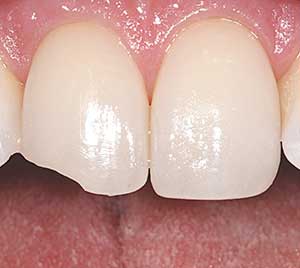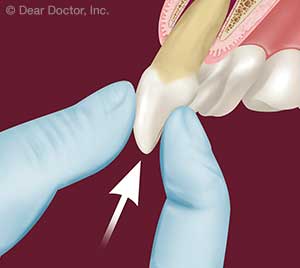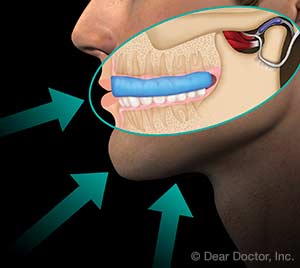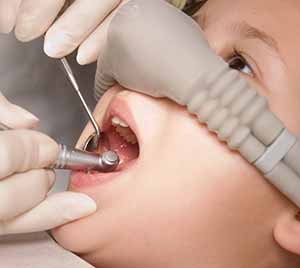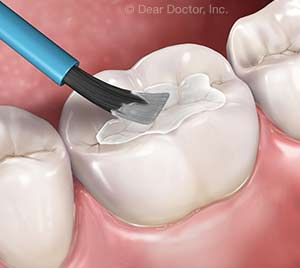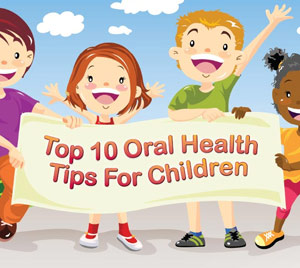Artistic repair of chipped front teeth.
Oral Health for Children (ages 3-12)
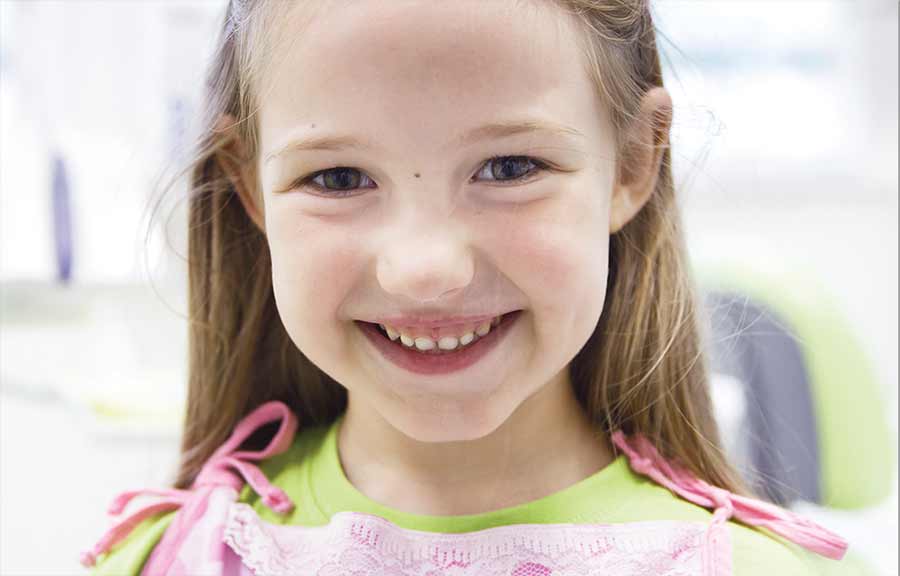
Tooth decay is the most common chronic disease of childhood, yet it’s also highly preventable. To maintain oral health, your child will need to develop a good oral hygiene routine at home; learn healthy eating habits; and see the dentist regularly for checkups and professional cleanings.
Age 3 is usually a good time to start teaching your child to brush with a soft, child’s size toothbrush and a pea-sized amount of fluoride toothpaste. Fluoride not only strengthens teeth, it can also reverse microscopic cavities that are beginning to form in the enamel. It’s important not to swallow excess fluoride, though, so teach your little ones how to spit after brushing. Although toddlers often want to do the whole brushing job themselves, children are usually not fully capable of cleaning every tooth surface until around age 6. So make sure you still take your turn each day until you are confident in your child’s ability to do a thorough (but gentle) job. Flossing may take even more time to master.
In order to make sure your children’s diet is promoting oral (and general) health, you have to pay attention not only to what they eat but also to what they drink. Soda and juice contain bacteria-nourishing sugar and tooth-eroding acid; it’s a double whammy that’s devastating to teeth and can promote childhood obesity.
All kids should have regular dental checkups and professional cleanings. To provide extra decay-resistance, your child will likely receive topical fluoride treatments at each regular appointment. Your child’s dentist might also recommend dental sealants — plastic coatings that smooth out deeper grooves in the back teeth where decay-causing bacteria and the food debris that feeds them can collect. Like fluoride treatments, sealants are painless, effective and inexpensive. The dentist will also keep an eye out for any developing orthodontic issues. These normally become apparent by age 7, which is when an orthodontic evaluation is recommended. Treatment, if needed, will usually begin around age 11 or 12.
Featured Topics
Act fast to save a knocked-out permanent tooth.
When is it time for your child to stop?
A wise investment for your teen’s dental health.
Instilling healthy habits starts now!
Reducing stress in the dental chair.
A great way to fight cavities in back teeth.
Good oral health can start right away!
